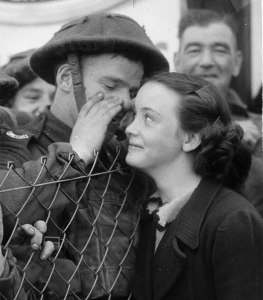Why does the voice in your ear seem so much more intimate than the image in your eye?
Partly, we’re conditioned to it: someone leans in and whispers in your ear: it’s secret; confidential.
I’ve been FaceTiming regularly with a friend; our conversations have been intimate. I enjoy seeing my friend leaning forward in the FaceTime frame on my laptop screen, listening intently or speaking. But one day when my friend’s FaceTime wasn’t working and we spoke on the phone, my friend’s voice alone, coming directly into my ear, felt infinitely more intimate.
The same thing happened with a livestream of The Encounter—a play collaboratively developed by the British theater company Complicite, directed and performed by its artistic director, Simon McBurney—from the Barbican Theater, London. Coming soon to Broadway, The Encounter—two hours of one man on a bare but cluttered stage—involves you in an elaborate soundscape that, if you let it, completely enmeshes you with the voice in your ear. (more…)

